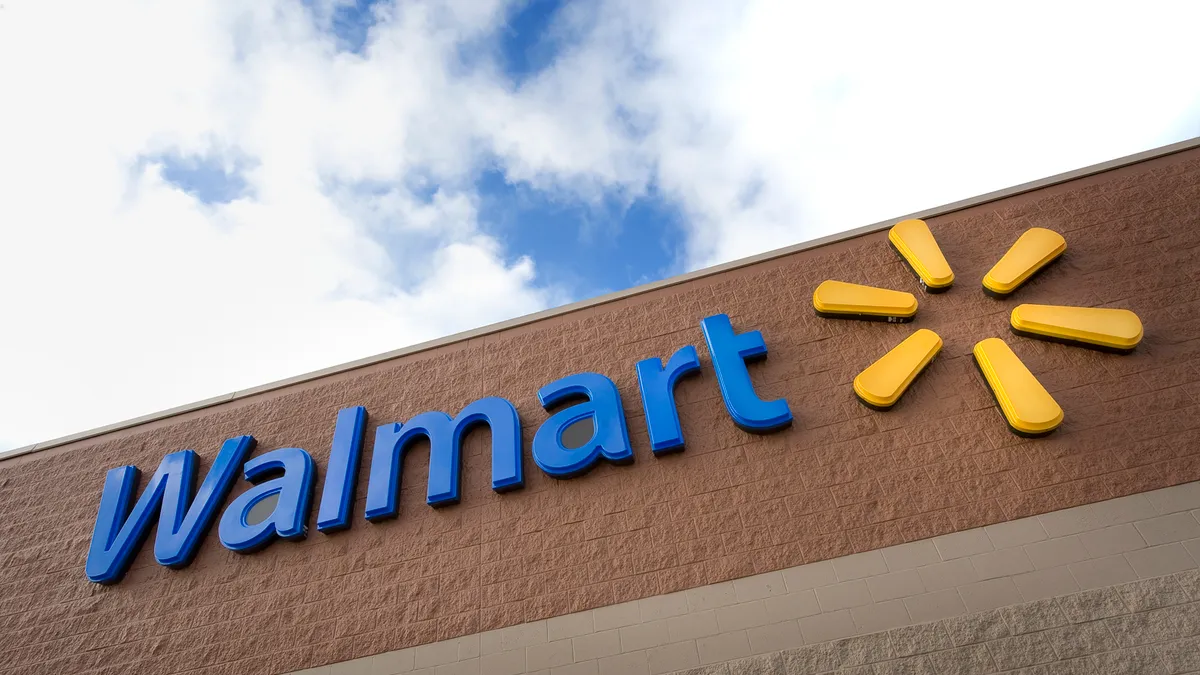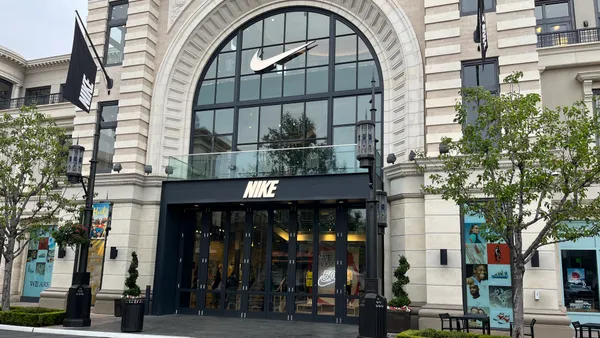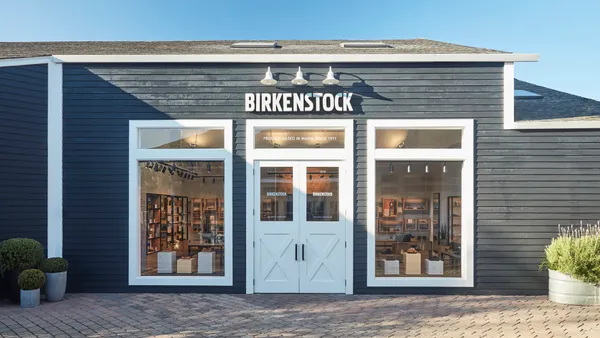Dive Brief:
- Wal-Mart Stores Inc. on Thursday reported that first quarter total revenue rose 1.4% to $117.5 billion, or 2.5% to $118.8 billion absent currency fluctuations, compared with the last-year period. Q1 net sales rose 0.8% to $28.3 billion and diluted earnings rose 2% year-over-year to $1 per share.
- Same-store sales in the quarter rose 1.4% as traffic rose 1.5%, while e-commerce sales grew 63% and digital gross merchandise volume rose 69%, according to a company press release. Most of the e-commerce growth was from Walmart.com, the company said.
- Wal-Mart International Q1 net sales fell 3.5% to $27.1 billion; excluding currency, Q1 net sales in the division rose 0.8% to $28.3 billion, an increase of 0.8%.
Dive Insight:
Wal-Mart’s assertive moves into e-commerce, which began last year with its $3.3 billion acquisition of Jet and subsequently of smaller e-commerce players, are already advancing the company's online sales. Moody’s Investors Services noted on Thursday that “the level of acceleration will continue to widen the gap between Walmart and its brick-and-mortar competitors,” according to a note emailed to Retail Dive from Moody’s Lead Analyst Charlie O’Shea.
“Working capital initiatives continue to bear fruit, with year-over inventories down over $1 billion and payables up almost $3.5 billion, and we also note debt balances are down over $3.5 billion year-over-year, which provides Walmart with additional financial flexibility as it continues with its multi-year investment program,” O’Shea also said. “[G]iven the current retail landscape, with many retailers experiencing challenges across multiple categories, we believe Walmart will continue to turn up the competitive heat by utilizing its scale and technological advantages to extract increased market share.”
Neil Saunders, managing director of GlobalData Retail, noted that Wal-Mart is taking market share through its aggressive pricing policies, improvements to stores and e-commerce push. “Overall, this is an encouraging start to the year for Walmart,” he said in a note emailed to Retail Dive. “In our view, the business has not only the strength to hold its own, but to take on the likes of Amazon and new value players. This is one US retailer that is ahead of the curve in responding to the evolving landscape.”
Still, e-commerce, while outpacing growth in overall retail, remains a small portion of retail sales and has higher costs, warns retail analyst Nick Egelanian, president of retail development consultants SiteWorks International. "I remain deeply concerned about their long term strategy both as it relates to reduced focus on its core stores business and billions going into internet infrastructure and shipping war with Amazon with dubious profit potential," he told Retail Dive in an email.
Grocery continues to be a strong suit for Wal-Mart, and GlobalData Retail analysts believe that damage from the growing encroachment of no-frills grocery stores Lidl, Aldi and Aldi cousin Trader Joe’s across the U.S. landscape is overstated. Some of the price differentials between those retailers and Wal-Mart have also been overblown, according to the note. In fact, the price war is winning back a bit of market share from dollar stores, which have presented Wal-Mart with significant competition, Saunders said.
Internationally, though, Wal-Mart's operations "remain patchy," Saunders said. "Overall performance is sound, but weaknesses persist in the U.K., where [Wal-Mart subsidiary] Asda continues to lose ground," he said. "There is a sense that Walmart is getting to grips with some of the issues, but we believe it will be some time before all parts of international make a solid contribution."
Some believe that the difficulties seen at Wal-Mart's Asda grocery effort in the U.K. portend trouble in the U.S. Experts last year repeatedly told Retail Dive to look at Britain’s grocery wars to understand the devastation that could be wrought by Aldi and Lidl. ”[Asda] was the greatest division a few years ago,” Howard Davidowitz, chairman of New York retail consulting and investment banking firm Davidowitz & Associates, told Retail Dive. “Then Aldi and Lidl went across England, and now Asda is doing very badly.”














